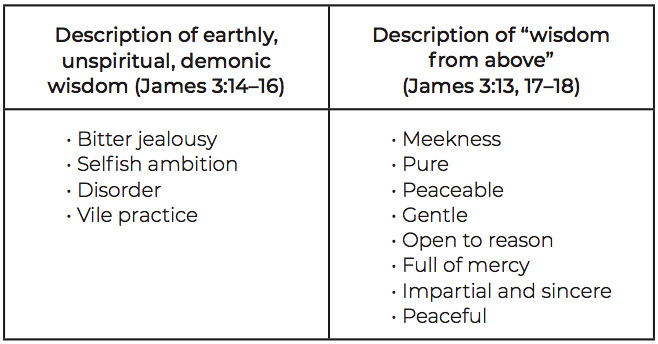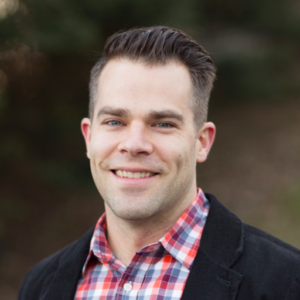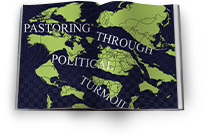Pastoring with Certainty in Uncertain Times
There are many truths we can know with certainty.
Luke gave his account of Christ’s life to Theophilus “that you may have certainty concerning the things you have been taught” (Lk. 1:4). The apostle John wrote his letter “that you may know that you have eternal life” (1 Jn. 5:13; also, Rom. 8:38-39). Postmodernity might tell us truth is relative, but we know there are absolute truths we can be certain of—truths we must guard (1 Tim. 6:20) and be willing to suffer for (2 Tim. 1:12–14). Praise God for truth to stand on that’s certain, reliable, and trustworthy.
Yet in our appreciation for truth and certainty, it’s important to recognize God-given uncertainties.
The author of Ecclesiastes tell us that our pursuit of answers to many questions will end in “vanity” or “futility,” like a vapor, breath, or puff of smoke (see esp. Eccl. 3:14). At the grand or meta level, God has kept some things secret (Deut. 29:29). At a more prosaic, everyday level, life confronts us with dilemmas that require nothing less than the wisdom of Solomon to resolve. Which mother would you have given the baby to (see 1 Kings 3)?
POLITICAL UNCERTAINTIES
Among the list of uncertain matters are so many of the political questions we face: Who’s right on mask-wearing, reopening plans, or the vaccine? When will life be back to “normal”? What are the ongoing effects of slavery and Jim Crow? Whom do I vote for? Is there government overreach? Was that a political stunt or a legitimate issue? We live in a time with much uncertainty.
Yet the uncertainty surrounding such questions doesn’t keep people from feeling certain about their convictions. Right now, the world is divided and dividing into smaller tribes. Each group lobs verbal grenades at each other. The divisions are accelerated by a 24-hour news cycle, social media, and being cooped up in quarantine. Rather than tread the waters of uncertainty, people look for something certain to stand on.
How do we pastor a congregation with conflicting sets of political certainties? How do we maintain the unity of the Spirit in the bond of peace” (Eph. 4:3) without compromising what’s true?
TREADING WITH CAUTION
This is where we need to be careful. On the one hand, some will go beyond what God has made clear and certain. They’ll claim certainty regarding a specific application of God’s Word as the only way of faithfulness. They baptize their assessments of what’s going on in the world. Really, they’re saying they cannot be wrong. And members and leaders who do this will prove attractive to others. Again, who doesn’t want certainty? The trouble is, they often prove to be quarrelsome, further entrenching sides in their positions.
On the other hand, we must not fail in our duty to preach the whole counsel of God and to help people understand what it means for their lives. To be sure, there are some political certainties. Discrimination is certainly wrong. Abortion is certainly wrong. And so forth.
Pastors and church leaders have to make decisions based on the information they have. But there’s a difference between proud certainty and humble confidence. It’s the knowledge that puffs up that leads to problems (1 Cor. 8:1). What if the thing we’re looking for certainty in is something God has hidden? What if he intentionally left it as a disputable matter?
We should seek to understand what’s going on in the world. We should scour the Scriptures for wisdom on every decision we make. In disputable matters, Paul instructs, “Each one should be fully convinced in his own mind” (Rom. 14:5b). But being “convinced in your own mind” does not give us permission to “despise” or “pass judgement” on those who disagree with us in those things (Rom. 14:3–4).
TWO KINDS OF WISDOM
We should also ask, which wisdom do you see in your own life and in those around you? There’s a difference between “earthly” wisdom and “wisdom from above.” Take a moment to read James 3:13–18 and consider the fruits of each type of wisdom.

James likely calls it “demonic” wisdom because it’s an echo of Satan’s lie in the Garden: that life is found in not in trusting God, but being God, “knowing good and evil” (Gen. 3:5). Ecclesiastes wisely reminds us of things we can’t know—that there’s such a thing as information God has withheld so that we might take refuge in him rather than grasping for the security blanket of trying to be God. Such humility produces an openness to reason, a mercifulness, and impartiality that helps us maintain the unity of the Spirit.
A FEW SHEPHERDING SUGGESTIONS
How can we shepherd the flock in times like these? Here are a few suggestions:
1. Preach and teach the Bible with certainty and conviction.
You should have no fear in doing this. When people in turn share their “certain” convictions with you, you can always reply, “I’m not certain about that, but I am certain that Jesus is the way, the truth, and the life because the Bible tells me so.”
2. Encourage people to assume the best in each other.
In challenging times, we tend to assume the worst as a sort of defense-mechanism. Doing so doesn’t promote unity; it hinders it. In 1 Corinthians 13:5, Paul says that love “keeps no record of wrongs.” Strive to forgive, to keep no record of wrongs, and to assume the best.
3. Be the Lord’s servant.
This is what Paul calls us to in 2 Timothy 2:24–25. “The Lord’s servant must not be quarrelsome but kind to everyone, able to teach, patiently enduring evil, correcting his opponents with gentleness. God may perhaps grant them repentance leading to a knowledge of the truth.” Include these things as a prayer list for your pastoral ministry.
4. Teach on the conscience and disputable matters.
We need to know which hills to die on and which things we can disagree on and yet happily be members of the same church. Encourage folks to hold fast and refuse to compromise on gospel truths we can know with certainty; encourage them to be wary of teachers who claim certainty on issues that are disputable. Here are some books you can read or suggest on this topic:
- Finding the Right Hills to Die On: The Case for Theological Triage, by Gavin Ortlund
- Conscience: What It Is, How to Train It, and Loving Those Who Differ, by Andy Naselli and J.D. Crowley
- Living Life Backward: How Ecclesiastes Teaches Us to Live in Light of the End, by David Gibson









